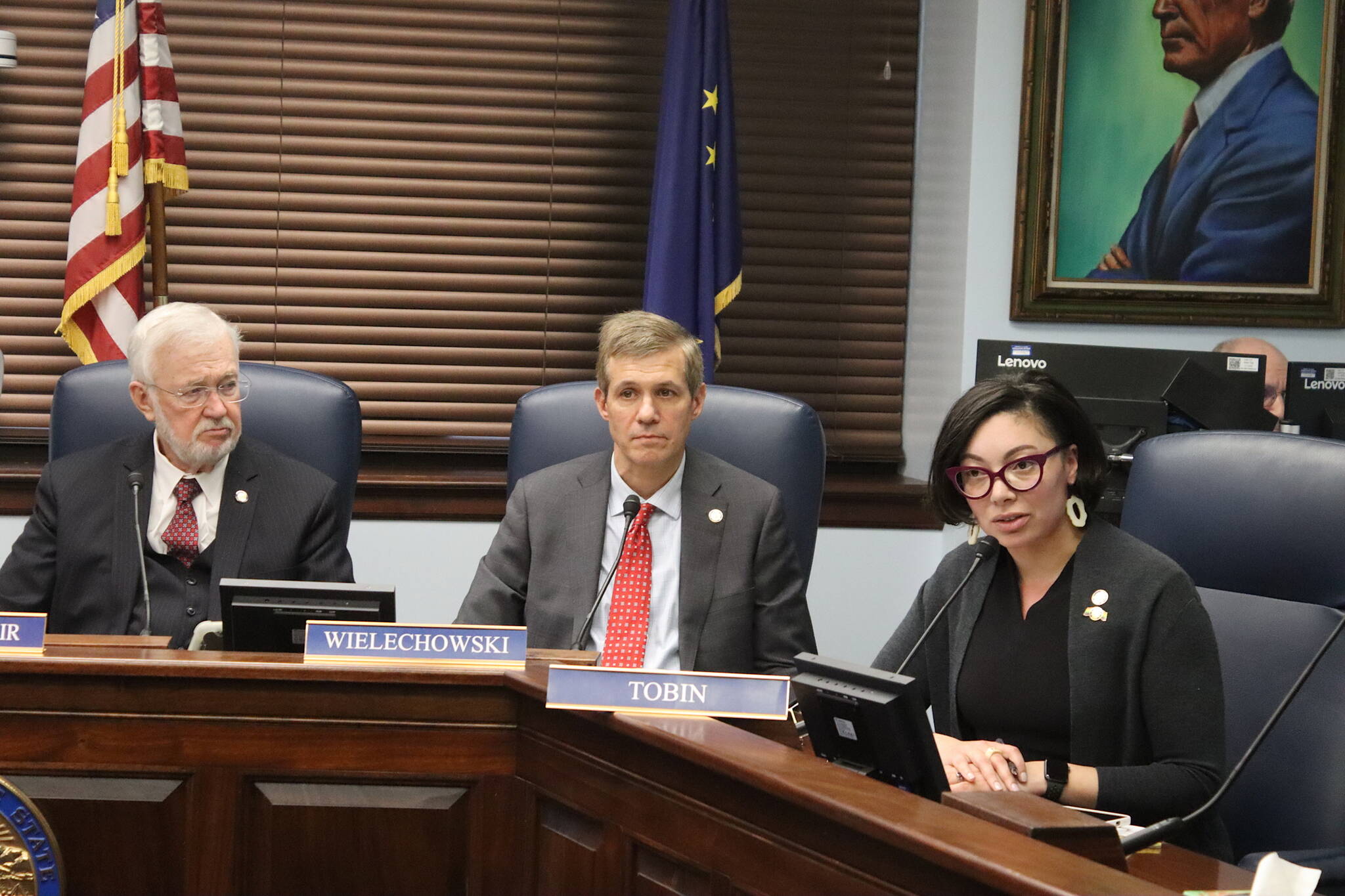This is a developing story.
A judge on Tuesday temporarily blocked a freeze on federal grants and loans ordered by the Trump administration, as officials ranging from local tribal leaders to state lawmakers to federal agencies tried to sort out the potential impacts of the order that could affect schools, nonprofits, healthcare, homeless assistance, disaster relief aid and other programs.
The freeze was scheduled to take effect at 1 p.m. Alaska time Tuesday, but the stay minutes beforehand by U.S. District Judge Loren L. AliKhan blocks the action until next Monday, according to the Associated Press. However, widespread disruption occurred earlier Tuesday as federal agencies prepared to enact the freeze, including states being cut off from Medicaid system access.
Leaders of the Alaska Senate majority caucus, during a press conference as the freeze was set to take effect, said they were still trying to assess the potential immediate impacts — as well as possible long-term implications of spending targeted by the order. The Trump administration, in a memo issued Monday, said it was seeking to pause all federal activity “including, but not limited to, financial assistance for foreign aid, nongovernmental organizations, DEI, woke gender ideology, and the green new deal.”
“Even this brief moment could be catastrophic for our state,” said State Sen. Löki Tobin, an Anchorage Democrat who chairs the Senate Education Committee. She said her concerns for education programs include classroom, after-school activities and assistance programs for needy families.
“There are so many resources that we received from the federal government — from our municipalities, to our transportation resources, to additionally programming that we have for folks who are houseless and homeless — as I know there is a complete freeze on those dollars as well,” she added. “It is difficult to understand what the consequences will be.”
Both of Alaska’s Republican U.S. senators expressed differing levels of concerns about the freeze that reflected their overall support for President Donald Trump and his actions since he began his second term a week ago Monday.
Sen. Lisa Murkowski, who has challenged numerous actions and statements by Trump, said Tuesday “I’m working through, trying to understand what this all means.”
“Our phones have been ringing off the hook all morning, wondering what it means (and) how long it’s going to last,” she said. “Everything from a small hydrodam project down in the Angoon area to people concerned about everything from housing to water infrastructure projects.”
Sen. Dan Sullivan, one of Trump’s strongest political supporters in the state, issued a prepared statement Tuesday afternoon declaring “the pause is more limited in scope than some initial media reports suggested, but I still have concerns on how it can negatively impact Alaskans.”
“According to the White House, the pause does not affect direct benefits to Americans and Alaskans — including Social Security, Medicare, Medicaid, SNAP, Pell grants, Head Start, veterans’ benefits, rental assistance and similar programs.” Sullivan wrote.
Support for the concept of the freeze was expressed in a statement by U.S. Rep. Nick Begich III, an Alaska Republican who strongly supports Trump, noting “the intention behind this temporary freeze is to review federal spending compliance, not cut critical assistance programs.”
However, despite White House assurances, a multitude of government agencies and officials reported problems with supposedly exempt programs such as Medicaid. Much of the turmoil was due to uncertainty about what the freeze applied to as defined in an initial two-page memo distributed by the White House budget office directs agencies that was vague on specifics.
Top administrative leaders with the City and Borough of Juneau said Monday night the city should be able to weather at least a short-term pause without difficulty since many of its federal grants are reimbursements that can be claimed afterward — assuming a permanent hold or revocation isn’t placed on such funds.
The Central Council of the Tlingit and Haida Indian Tribes of Alaska, in a statement Tuesday evening, notes that while “executive orders are not uncommon at the start of every new Administration…the recent announcement of an order freezing funding from federal grants and loans is concerning.”
“It is the responsibility of the federal government to provide vital resources for education, public safety, housing, etc.,” the statement notes. “Without these funds, tribal governments face significant challenges in fulfilling their responsibilities to their citizens, many of whom rely on these programs for their well-being and economic stability.”
The council’s statement also recommends other Southeast tribal governments “drawdown any funds available under a 638 or Self-Governance agreement from federal payment systems (e.g., ASAP, PMS, and/or ELOCCS)” and “review discretionary award agreements to ensure there is a claw-back clause for any contract or major obligation.”
• Contact Mark Sabbatini at mark.sabbatini@juneauempire.com or (907) 957-2306.

